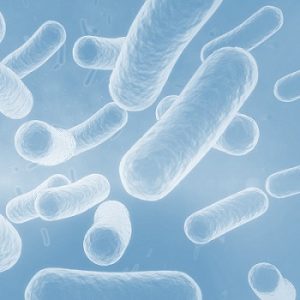
More evidence that low-calorie sweeteners are bad for your health
Studies show that artificial sweeteners can raise the risk of hypertension, metabolic syndrome, type 2 diabetes and heart disease, including stroke.

Natural Health News — A new study suggests that healthy breast tissue contains more of a ‘good’ bacteria called Methylobacterium, a finding that opens up new possibilities for prevention, for instance with probiotics.
Previous studies have examined the link between gut microbiota and the development of breast cancer. These have suggested that the microbes in the gut may regulate estrogen levels, leading to estrogen-receptor positive breast cancer.
But less attention has been paid to the microbiome residing in the breast tissue, which the researchers suggest is unique and somehow becomes altered in women who have breast cancer.
Researchers have long suspected that a “microbiome” exists within breast tissue and plays a role in breast cancer but it has not yet been characterised. The research team has taken the first step toward understanding the composition of the bacteria in breast cancer by uncovering distinct microbial differences in healthy and cancerous breast tissue.
Published online in the journal Oncotarget the study examined the breast tissue of 78 women – 57 of whom had undergone a mastectomy because they had invasive breast cancer, and 21 of whom were healthy and had undergone cosmetic breast surgery.
More harmful bacteria in breast cancer patients
» A new study has discovered that breast tissue has a unique microbiome, distinct from that in the gut.
» By studying breast tissue in women with and without breast cancer, scientists have determined that women with breast cancer have lower levels of a beneficial bacteria called Methylobacterium in their breast tissue.
» In addition, breast cancer patients also have higher levels of several types of pathogenic bacteria in their urine.
» The study opens up the possibility that breast cancer prevention could effectively utilise either probiotics or antibiotics.
In addition to the breast tissue microbiome, the scientists examined the urinary and oral bacteria of these women. Not only did they find that women with breast cancer had considerably lower levels of a bacterial genus called Methylobacterium, they also discovered that these women also had higher levels of so-called gram-positive bacteria in urine, including Staphylococcus, Corynebacterium, Propionibacteriaceae, and Actinomyces.
Probiotics as form of prevention?
“To my knowledge, this is the first study to examine both breast tissue and distant sites of the body for bacterial differences in breast cancer,” said co-senior author Charis Eng, M.D., Ph.D., chair of Cleveland Clinic’s Genomic Medicine Institute and director of the Center for Personalized Genetic Healthcare.
“Our hope is to find a biomarker that would help us diagnose breast cancer quickly and easily. In our wildest dreams, we hope we can use microbiomics right before breast cancer forms and then prevent cancer with probiotics or antibiotics.”
Breast cancer is the second most common cancer in women (after skin cancer). In the UK and US 1 in 8 women will develop the disease in their lifetimes.
More research is needed, the authors note, to understand the role of these bacteria in breast cancer. The findings also need “a larger cohort of clinically matched patients” to be validated. However, the research remains “one of the largest studies to examine the microbiome in human breast cancer patients,” write the authors.

Please subscribe me to your newsletter mailing list. I have read the
privacy statement